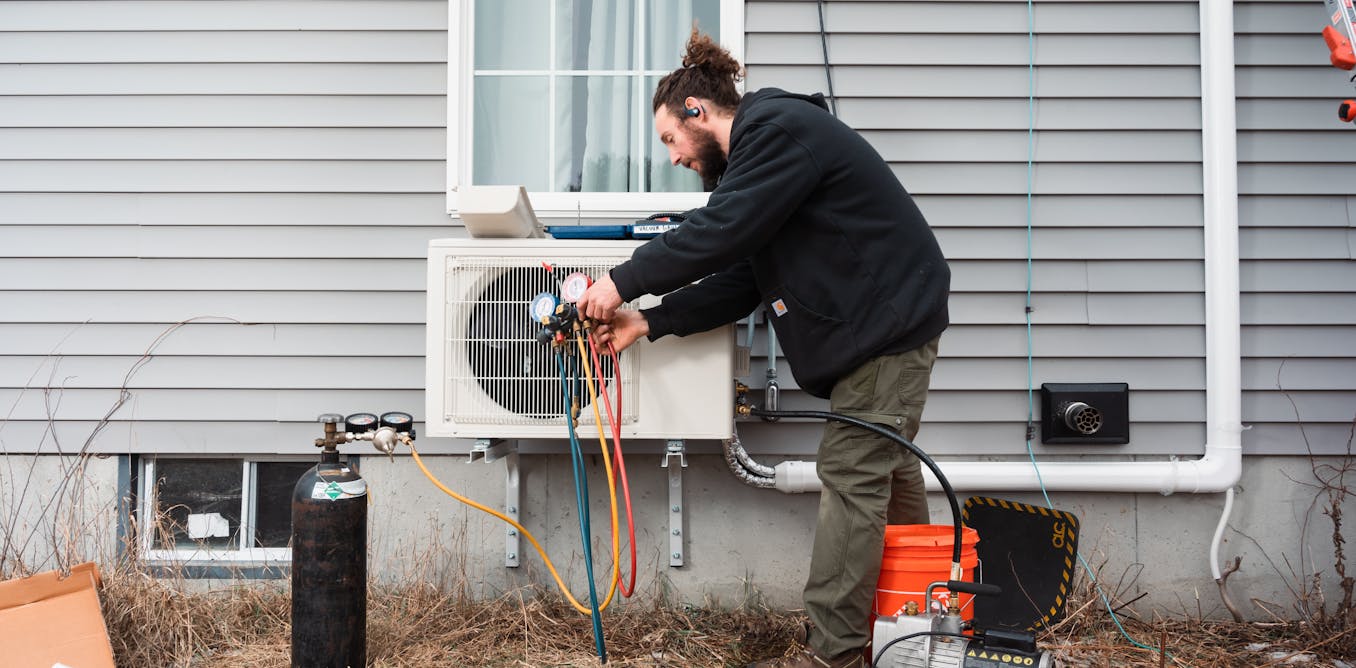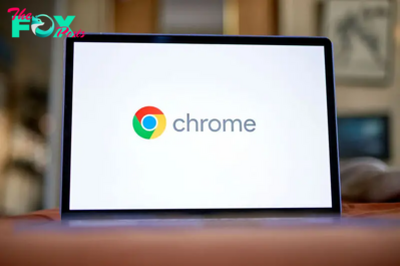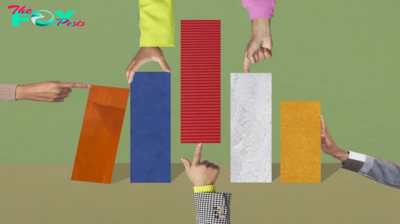Business
Bill Ford on Revitalizing Michigan Central Station, the Future of Detroit and EV Politics
Bill Ford, the executive chair of Ford Motor Company, partly credits his experience in Silicon Valley with helping him come up with a plan to restore Detroit’s Michigan Central Station. The 111-year-old Beaux-Arts building, designed by the same firm that did New York City’s Grand Central Station, had fallen into disuse after closing in the 1980s, becoming a symbol for the city’s decline—something Ford had long wanted to change.
Ford, a great-grandson of the automaker’s founder, Henry Ford, served on eBay’s board in the early 2000s and later went on to found a venture-capital firm to invest in the future of mobility. “I was acutely aware of all the vitality, all the startup energy, and all the funding available for new ideas in the Valley—and I would come back to Michigan and see none of that happening,” he says. “I couldn't even get anybody in our industry or our company interested in what was going on in Silicon Valley.” While his firm, Fontinalis Partners, found plenty of prospects in the Bay Area, Austin, and even overseas, Ford says they struggled to find Michiganian companies to invest in.
When he spoke about the changes the industry needed to make during a TED talk in 2011, it wasn’t well-received in the auto industry. “People thought I was crazy,” he says, noting that much of what he’d said the industry needed has since come to pass, such as advances in connected car Technology. “It really enforced the fact that we had become an insular company, in an insular industry and an insular town, and that the future was not going to be created here unless there was a concerted effort to do that.”
One part of that effort is now coming to pass: Ford Motor Company bought the abandoned train station in 2018, kicking off a massive preservation project that aims to make the century-old building the centerpiece of a 30-acre technology and cultural hub. On June 6, Michigan Central celebrated its reopening with a concert featuring Motown legend Diana Ross and rock star Jack White, executive produced by rapper Eminem.
Ford spoke with TIME on May 17 about what the project means for Detroit, the auto company’s future, and what he’s learned about leadership.
This interview has been condensed and edited for clarity.
Tell me about the Michigan Central project and why you got involved.
On a visceral level, the reason I got involved is because I remember the train station as a young boy. And then I remember very vividly, as my life progressed, the train station just being a wreck; it was often the visual that accompanied a national story about the decay of Detroit. I hated both the fact that the nation was looking at our city the way it was, and also the fact that that was always the visual. And so in the back of my mind, I always was saying to myself, if I'm ever able to think of a reason to take the station over and revitalize it, I would love to. But I could never really come up with a Business reason.
One day I was driving by and [it] just clicked in my head and I said, “What if we could reimagine Michigan Central, not as a wonderful trip down memory lane, but also as the place where people come together to make the Motor City the Motor City again, where the future of mobility is worked on.” That's why I bought the Book Depository building next door, which is up and running and has 97 startups already in it. Half of those startups are from the Michigan area. The other half are or not, which is great. So we're bringing talent here. [At] Michigan Central, from a work standpoint, we'll have bigger companies like Ford, like Google—these startups will be able to collaborate with them to work on a lot of these interesting things. We can use Michigan Avenue as a really interesting testbed for all kinds of different experiments. The FAA has granted us the airspace, so we can play with [vertical take-off and landing aircraft] solutions and drones and how they connect with vehicles, and how they connect with robots. We have an inductive charging street now, so when you drive your EVs, it'll charge as you drive. We have 20 venture capital companies now in the Book Depository building, so this whole flywheel—[in] which you need all those pieces to have a Healthy, innovative ecosystem—is starting to be put together down there.
What do you think that this will mean for Detroit?
For most of my life, Detroit was in decline. I am old enough to remember Detroit before the ’67 riots. Prior to that, everything I did was in the city. My pediatrician, my dentist—everything was there. And then the riots happened and you have many, many, many years then, of not only white flight, but frankly, white versus Black, suburb versus city. There was no collaboration really in the region. The city was shrinking. This last census, we're growing again, which is awesome. I think there's been so much positive energy in Detroit in the last six or seven years. Our midtown area has been redeveloped. We had the NFL Draft here a couple of weeks ago. There were no incidents and I think the country could see Detroit in a different light. So, in many ways, it will be the exclamation point for the rebirth of our city, because the station itself is going to be a really fun gathering spot. We'll have art, we'll have music, we'll have coffee shops. We were [also] very intentional about connecting it to everything else. Roosevelt Park, which is out in front, has been completely redone and it’s very pretty. We have a new Greenway in downtown Detroit. We're building a lot of bike paths and pedestrian areas and [planting] tons and tons of trees. And we're also at the intersection between two iconic neighborhoods that have always been divided—Corktown and Southwest Detroit.
Ford CEO Jim Farley recently said that, in the wake of the negotiations with the United Auto Workers Union, Ford would be rethinking where it builds some vehicles. What does that mean in terms of Ford's commitment to Detroit?
Well, our commitment to Detroit has never wavered for 120 years and it won't. Just look at Detroit—you've got things like the Henry Ford Health System, the Detroit Institute of Arts, Ford Field; I redid the Rouge, the Henry Ford Museum. We've been invested as a family in Detroit for many, many, many years and this is kind of doubling down on that and that won't change. We will always support our hometown. I've always believed that a company that isn't making people's lives better shouldn’t exist, and part of that is taking care of the communities in which you operate. So that won't change at all. And we are the most American company—we make the most vehicles here, we employ the most Americans [of any automaker], and I'm very proud of that. And I've also never thought of our employees as, “UAW or white collar.” To me, we're all just Ford employees, and I've got a tremendous relationship with our union employees. I really cherish those relationships. But the business realities, which both the UAW leadership and ourselves have to deal with, sometimes lead us to [make] decisions that short-term may not look like the most wonderful, but long-term, they always work out. Look, 120 years later, we're still here, we're growing, and we've been adding jobs in the last six, seven years.
You were on the board of eBay and co-founded a VC firm, Fontinalis Partners. What lessons did you learn from Silicon Valley?
I think, interestingly, in some ways Silicon Valley is as insular, in its own way, as our industry was—but on the very positive side, there was a belief that anything was possible, that smart people could imagine the future and that they could find people to back them on that journey. I found that really compelling, very exciting, and in many ways, it was like the days when my great-grandfather founded Ford. But we had lost that here in Michigan and in our industry, and in our company. I was determined to get that back. Because, if we didn't, the future would not be created here.
You come from a long line of executives. What lessons have you learned from them about leadership?
You only need a couple things to be a really good leader, I think you need to have a very strong set of values and live those values. And you have to be authentic, and you can't try and be anybody else, because I think most people have a great BS detector. [Often] somebody gets put into a higher position and they believe they have to change. Well, everybody who knows that person sees that immediately and they lose all credibility. I've seen leaders who are introverts, I've seen leaders who are extroverts. I've seen leaders who are kind of egocentric. I've seen leaders who are very selfless. But the one thing they all have in common is they're genuine.
And admit your mistakes and learn from them. I still see a lot of people in important positions who portray themselves as infallible. Well, that's not possible and I think that really stops you from learning.
You consider yourself an environmentalist and you've been championing the EV side of the business. Where do you see Ford's future and how are you thinking about the competitive landscape?
It's ever-changing. Several years ago, we divided our businesses into: Ford Blue, the combustion engine business; Ford Model e, which is our electric vehicle business; and Ford Pro, which is our commercial-facing business. And that really shines a spotlight, like on Ford Model e, you can actually see exactly where the gaps are. A lot of companies will hide that. But for us, there's tremendous clarity. Now there's a bit of pain in that because everyone can say, “Oh, wow, you guys are losing X per vehicle.” Yes, we are, and we can't go on like that.
We made a decision a few years ago in our internal combustion engine [ICE] business, to focus on our really highly emotional products—Bronco, Raptor, Mustang, Ranger. They’re selling out and people love them. Then we also made the decision to invest a lot in hybrids.
The one thing I've learned in my career is, we can know directionally where things are going, but we can never know timelines. Our research shows the people who have bought EVs, they're heavily intentional to buy another EV for their next vehicle. The charging infrastructure certainly has to get better and that's a pain point for a lot of EV customers. And then the price to the customer has to come down dramatically. But I think both of those things will happen.
We've just got [a] choice for everybody, so we're not shoving anything down anybody's throat. If you want an EV, great. We're the number two seller in the U.S. of EVs. If you want hybrids, that may be a wonderful transitional Technology to get you ultimately to full EV and if you want an ICE vehicle, we've got those too, so I feel like our strategy is the right one. The timeframe is unknown. Because we never could have in our wildest dreams imagined our vehicles, i.e. EVs, becoming political hot potatoes, like they are today.
How have you handled political discussions around EVs?
There’s no question in Washington you tend to have different conversations depending on who you're talking to. Some people say “why can't you make more of them” and others say “why are you making them, because we just got energy-independent as a country?” But the reality is, the fact that we have something for everybody allows the temperature to come down in those conversations and then allows a more thoughtful discussion about, where should we go as an industry, what does it take to get there? What kind of Technology is needed? Do we have the right American supply base to deliver that Technology? My experience has been that the path that we've chosen—which is basically we're not forcing anything on anybody and the customer will decide—tends to almost take all the emotion out of the discussion, and then you can get into the mechanics.
You have a great view into consumers’ priorities. It’s an election year. What is the outlook for the U.S. economy in your opinion?
I think everybody's crystal balls are necessarily cloudy. You have some people saying we're heading for a soft landing. Other prominent leaders, like Jamie Dimon, say maybe not. Our demand is still pretty strong right now but we're aware that credit card delinquencies are rising and there's some things we're looking very closely at. We're in an election year. The one thing that hurts us as a company and our industry is when things go from pillar to post from a policy standpoint. Our lead times are long. We have to build prototypes, we have to make sure they're safe, we have to make sure the supply chain at every step is ready to go. So what helps us is clarity in terms of where we're headed from a policy standpoint. I hope we can have that as we go forward, because we can live, in time, with lots of different policies—but what we cannot do is react in a very short-term way.
-

 Business12h ago
Business12h agoNew Information: These HV Big Lots Are Now Staying Open
-

 Business12h ago
Business12h agoBrush Fire Rages On Near Butternut In Great Barrington, MA
-

 Business2d ago
Business2d agoCarbon offsets can help bring energy efficiency to low-income Americans − our Nashville data shows it could be a win for everyone
-

 Business2d ago
Business2d agoWorkplace diversity training programs are everywhere, but their effectiveness varies widely
-

 Business2d ago
Business2d agoFirm bosses urged to make use of Welsh language to revitalise rural economic system
-

 Business3d ago
Business3d agoDonor-advised funds are drawing a lot of assets besides cash – taking a bigger bite out of tax revenue than other kinds of charitable giving
-

 Business4d ago
Business4d agoClimbing Fans: A New Place to Boulder and More in Kingston
-

 Business5d ago
Business5d agoThe Anchovy Debate: Pizza Lovers’ Strong Feelings In Hudson Valley



























